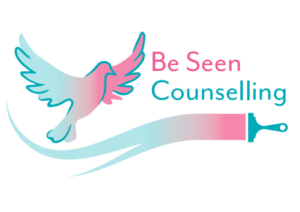Let’s be honest—work isn’t just about what you do. It’s about who you do it with. The relationships we build in the workplace play a huge role in how we feel about our jobs. When these relationships are positive, it creates an environment where we can thrive. But when they break down, it can have devastating effects on our mental health, leading to stress, anxiety, and even time off work.
If you’ve ever found yourself struggling in a difficult work environment, you’re not alone. Workplace conflict or ineffective communication can turn what used to be a fulfilling job into a daily source of stress. It’s a situation many of us have experienced, and the consequences can be significant.

A positive workplace environment doesn’t just happen; it’s built on healthy, trusting relationships between colleagues. When you feel supported by your team, you’re more motivated, engaged, and productive. A culture of open communication allows ideas to flow freely, leading to better problem-solving and collaboration. In such an environment, work becomes a place where you feel valued, heard, and respected.
On the flip side, when communication breaks down or relationships become strained, it can have a ripple effect. Misunderstandings arise, tensions build, and before you know it, the atmosphere becomes toxic. This can lead to feelings of isolation and frustration, which naturally spills over into other aspects of life.
Many TEDx talks on mental health stress the importance of addressing workplace stress, anxiety, and burnout. While some companies focus on mental health initiatives to improve productivity and reduce costs, the emphasis should be on improving employees’ quality of life. It’s not just about saving money—it’s about creating a compassionate, supportive environment where people can thrive.
Companies often focus on mental health because it saves them money in the long run—less absenteeism, higher productivity, fewer healthcare costs. But this approach is problematic because it reduces mental well-being to a mere financial strategy. The priority should be on providing a better quality of life for employees. A mentally healthy workplace fosters happiness, purpose, and connection, which is far more valuable than cost-cutting measures. Mental health isn’t just a business decision—it’s a human one, and this needs to change in the workplace.
When workplace relationships break down, the toll it takes on your mental health can be profound. You might find yourself becoming anxious at the thought of going into work. Maybe you’re avoiding certain conversations or even dreading meetings because they’ve become confrontational or uncomfortable. This constant stress can lead to sleepless nights, irritability, and in some cases, calling in sick just to avoid the emotional drain of your job.
When the stress from work starts to affect your physical and mental health, it’s crucial to take it seriously and consider what steps you can take to improve the situation—or, if necessary, move on.
In extreme cases, when workplace relationships break down and communication becomes ineffective, this environment can push you to take long-term sick leave. It’s often the result of feeling overwhelmed, unsupported, and burnt out. The strain of dealing with unsupportive colleagues, a toxic work environment, or even a manager who dismisses your concerns can lead to chronic stress as well as burnout. This level of pressure can cause more than just frustration—it can result in serious health issues, and even the difficult realisation that the situation is no longer sustainable.

A Client’s Experience
Take Shelly’s (54) story, who generously shared her experiences: “I had been in my role for almost 20 years, and at one point, I loved it. But everything changed when our new manager came in a few years ago. I started to feel more and more dismissed, my contributions undervalued, and support that was promised always seemed to be temporary. It felt like they only gave me what I needed just long enough for me to get back on my feet, and then they’d pile on more work until I collapsed again. It was a cycle I couldn’t escape from.
The environment was fast-paced, and as the demands grew, I found myself completely unsupported. Despite raising concerns about my workload and my health, I was constantly told things would improve—but they never did. A few months ago, I actually collapsed at work. The stress, the anxiety, the sheer physical toll of trying to manage everything on my own was too much.
Since then, I’ve been off sick, trying to recover. But the pressure from my workplace hasn’t stopped. Union reps, occupational health assessments, and HR have been constantly nudging me to return, but I knew deep down I wasn’t ready. The more they pushed, the more anxious and stressed I became. It felt like they just didn’t understand—or didn’t care—about what I was going through.
In therapy, I finally started to see the situation for what it was: toxic. I realised I couldn’t trust anyone at work to have my back. Their promises of support were always short-lived, and once I was ‘back on my feet,’ the workload would pile up again, and the cycle would start over. I had to admit to myself that this wasn’t something I could fix on my own. It wasn’t my responsibility to make the relationship with my workplace work—because it was never a partnership to begin with. It takes two to make a relationship work, and my manager just wasn’t listening. It couldn’t all be on me anymore.
Now, I’m focusing on my health. I’ve realised that long-term sick leave is the best option for me right now so I can fully recover and get the surgery I need. Therapy has helped me come to terms with this. It’s been tough accepting that, after nearly 20 years in this job, I’ll probably need to move on. But I’m finally starting to see that my skills are transferable, and I don’t have to stay in a toxic environment just because I’ve been there so long. I deserve better, and I’m looking at new opportunities in less stressful roles where my wellbeing can actually come first.” (pseudonym used)
This client’s story highlights the profound impact that poor workplace communication and broken relationships can have, not only on your mental health but on your physical wellbeing too. When promises of support are made and then retracted, it creates a cycle of instability and mistrust. As this client discovered, it’s crucial to recognise when a situation has become toxic and when it’s time to put your health first.
If you’re still in the role and looking to recover from a difficult working environment, it’s important to approach the situation with a mix of self-awareness and action. Here are some steps you can take to start the healing process:

If you’ve been trying to improve communication in your workplace, yet nothing seems to change, it can leave you feeling frustrated and defeated. While every workplace will have its ups and downs, there are certain signs that indicate the breakdown in communication is more than just a temporary issue—and may signal that it’s time to consider leaving the environment altogether.
Here are key signs to look for when workplace communication has broken down and attempts to fix it have been unsuccessful:
One of the clearest signs that communication has broken down is when your concerns aren’t taken seriously. You might have raised issues with your manager or HR, only to have them dismissed or brushed aside with vague reassurances that “things will improve” without any real action. When your feelings are consistently invalidated, it’s a sign that the workplace is not responsive to your needs.
If you’ve been offered support, such as adjusted workloads, more resources, or regular check-ins, but these changes are only temporary and revoked as soon as you’re back on your feet, it’s a sign that the organisation isn’t committed to real, lasting change. This creates a cycle of instability where you’re supported only when you’re struggling, but once you’ve recovered slightly, you’re left to deal with the full burden again.
When communication breaks down, it’s common to feel isolated from your team. This could be through exclusion from important meetings, being left out of key conversations, or feeling that your input is no longer valued. If you find that your voice is being ignored or you’re being sidelined, it’s a red flag that your role within the company is being diminished.
Effective communication requires accountability. If you’ve raised concerns and no one is taking responsibility for addressing them, it shows a lack of commitment from management or your colleagues to make necessary changes. Whether it’s avoiding difficult conversations, pushing issues under the rug, or failing to follow through on agreed actions, the absence of accountability is a major indicator that the communication breakdown is systemic.
You may notice the atmosphere in the workplace has changed. There may be increased tension, gossip, or hostility. You might dread going into work, feeling anxious or on edge the moment you walk through the door. If toxic behaviours such as passive-aggressiveness, bullying, or scapegoating are left unchecked, and the culture has turned sour, this could signal that the issues run deeper than just communication failures.
One of the most significant signs that it’s time to move on is if the stress from poor communication is affecting your mental or physical health. If you’re experiencing symptoms of anxiety, depression, burnout, or physical ailments like headaches, fatigue, or even collapsing at work, it’s time to take this seriously. Chronic stress from unresolved workplace issues can have long-term impacts on your wellbeing, and staying in a toxic environment can exacerbate these health problems.
Perhaps you’ve already taken steps to resolve the issues—initiating conversations with management, seeking mediation, or attempting to open up lines of communication. But despite your best efforts, nothing has changed. If you’ve tried to fix the situation multiple times and haven’t seen any improvement, it might be a sign that the workplace culture isn’t one that’s capable of meaningful change.
Trust is the foundation of any positive working relationship. When you can no longer trust that your colleagues or managers have your back or that they will follow through on their promises, communication breaks down completely. If you find yourself constantly doubting whether what is said will be done—or if support only comes in short spurts and then disappears—it’s a sign that trust has eroded. Without trust, there’s little chance for improvement.

If you’ve experienced any or all of these signs, it may be time to seriously consider whether staying in your current job is sustainable. A breakdown in communication is not just about having a bad day at the office—it’s about recognising when the workplace dynamic has become toxic to your mental and physical health.
Here’s when it’s time to move on:
Moving on from a job—especially if you’ve been there for many years—can be incredibly difficult. But sometimes, acknowledging that it’s time to leave is the healthiest decision you can make. Your wellbeing should never be compromised by a workplace that can’t or won’t communicate effectively.
If you’ve made the decision to leave a toxic workplace, this can be a time of mixed emotions. You may feel a sense of relief but also uncertainty about what comes next. Moving on is an opportunity to reflect on what you’ve learned and set new expectations for your next role.
Here are some key lessons to take with you:
Grow from the Experience
Reflect on how you handled the challenges in your previous role. What worked, what didn’t, and how can you approach things differently next time? Whether it’s improving your communication skills or learning when to step back, every difficult experience can teach you something valuable for the future.

Work should be a place where you feel valued and supported, not somewhere that causes anxiety and stress. However, sometimes we can’t change the people we work with or the workplace culture itself. What we can change is how we respond to these challenges, and this is where therapy can be incredibly helpful.
Therapy provides a safe space to explore and process the stress and anxiety that comes from difficult work environments. It can help you identify patterns, manage your emotions, and develop healthier ways to cope with conflict or pressure at work. Through therapy, you can learn to speak out more confidently, set better boundaries, and recognise when to step back emotionally from toxic situations.
Therapists can also help you see things from a different perspective, allowing you to understand what’s within your control and what isn’t. You may not be able to change the workplace, but you can change how you navigate it. This inner work can empower you to protect your mental health while improving your ability to communicate effectively and assertively.
Remember, it’s not about “toughing it out” or forcing yourself to stay silent. Seeking support—whether through therapy or talking to others—is a powerful way to regain control over your mental wellbeing.
If you’re struggling, therapy can be a life-changing tool to help you manage workplace stress and find a healthier balance. You deserve to feel supported, and your mental health is worth prioritising.
Let’s talk about how we can create a workplace culture where everyone thrives, and how you can build resilience in the face of difficult work dynamics.

Hi there, my name is Carina,
I support survivors of domestic violence / Intimate partner violence, to understand and process the emotional and psychological symptoms so that you live your life feeling safe in your own skin, gain peace and joy in everyday moments and trust yourself and others again.
Camberwell
Southwark
London SE5 7HN

©BeSeenCounselling2025
©2025
Be Seen Counselling